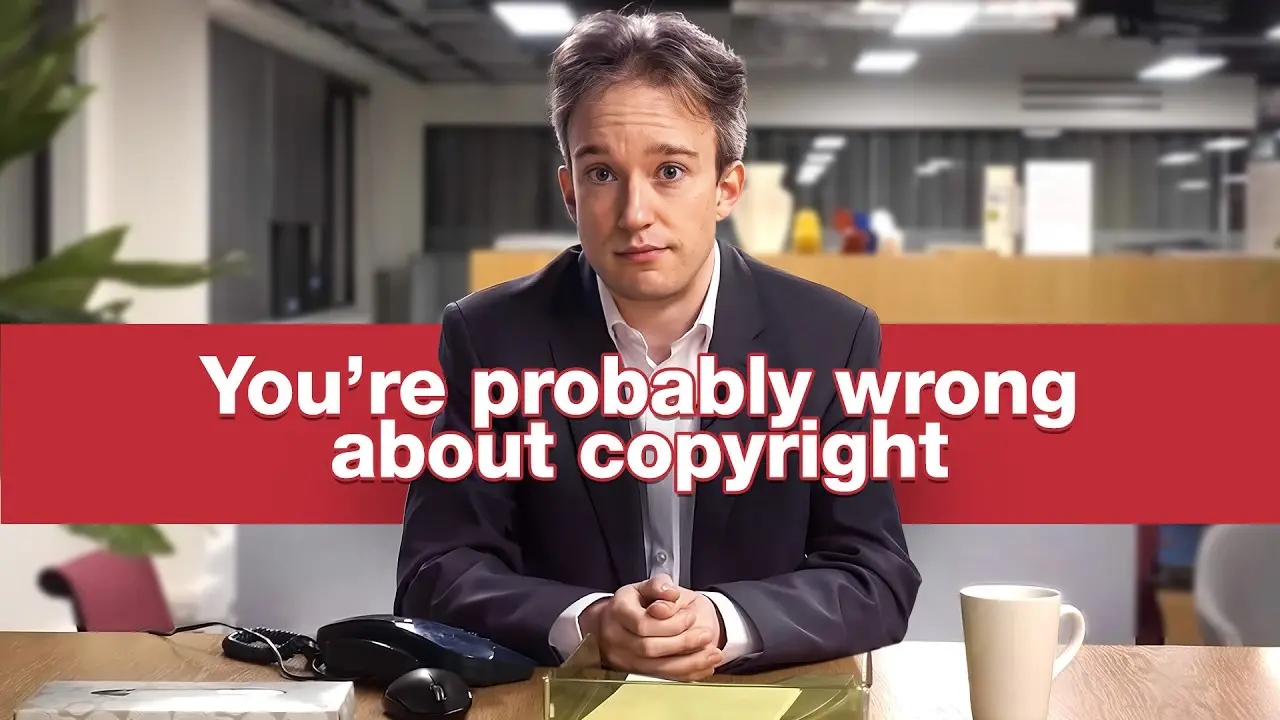So recently there has been a lot of debate on AI-generated art and its copyright. I’ve read a lot of comments recently that made me think of this video and I want to highly encourage everyone to watch it, maybe even watch it again if you already viewed it. Watch it specifically with the question “If an AI did it, would it change anything?”
Right now, AI-generated works aren’t copyrightable. https://www.artnews.com/art-news/news/ai-generator-art-text-us-copyright-policy-1234661683/ This means you can not copyright the works produced by AI.
I work in games so this is more seemingly relevant to me than maybe it is to you. https://techcrunch.com/2023/07/03/valve-responds-to-claims-it-has-banned-ai-generated-games-from-steam/ Steam has outright said, earlier this month, that it will not publish games on its platform without understanding if the training data has been of images that aren’t public domain.
So right now, common AI is producing works that are potentially copyright-infringing works and are unable to be copyrighted themselves.
So with this information, should copyright exist, and if not, how do you encourage artists and scientists to produce works if they no longer can make a living off of it?



> Not sure why artists are brought up here
It was brought up in the original post.
> <…> may even go straight to the AI model since that’s distributed cheaply or even free.
Isn’t that part of the capitalism artists love so much? People will go with the cheapest option that meet their criteria. So that just validates my point where someone who wouldn’t have hired an artist now has an option, while those that prefer better quality will still hire artists.
> It is highly discouraging for artists who have worked hard to hone their craft, only to have people think that their works have little difference or even a mimicry (don’t underestimate misinformation).
Easily disprovable and while I can understand the concern it’s just another medium affected by general polarization. Again AI is just shining a light on the issue not creating it.
> There has been many instances where such training was done without the knowledge of the artist.
And that is the legal question that wasn’t answered yet. But the cat is out of the bag. The models are alreday trained and a lot of them are open source so there is no possible way to remove them. Interested groups should have lobbied for laws to protect from it 5-8 years ago when the tech was starting to develop. But people ignore issues until it affects them directly.
> Imagine just waking up one day, and finding that there’s someone or something that can very closely reproduce your works, one’s you’ve taken many years of practice to produce, of which its quality is almost unique to yourself.
Isn’t that how artists learn by making copies of someone else’s work?
> Saying that AI is not intended to replace artists, but to improve accessibility, is like saying ATMs weren’t meant to replace bank tellers.
Apples vs oranges. One is creative process while other is not. Going to 10 different artists will get me 10 different results while going to 10 bank tellers will get me the same result every time.